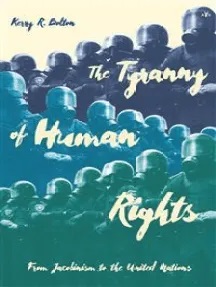If Poland Chooses a Liberal Government, It Will Undergo a Cultural Revolution
The Visegrád Post1,457 words
Interview with Grégor Puppinck, Director of the European Center for Law and Justice (ECLJ)
In November of this year, Poles will vote to elect a new Sejm (parliament), and therefore a new government. Under pressure at the national level from the Euro-enthusiastic liberals on its left and the patriots and nationalists of Konfederacja on its right, the center-Right coalition led by the Law and Justice Party (PiS) is not certain to win the upcoming elections after two consecutive terms.
Grégor Puppinck is the Director of the European Center for Law and Justice (ECLJ). He is a member of the Organization for Security and Cooperation in Europe’s (OSCE) Panel of Experts on Freedom of Religion or Belief, as well as an expert for the Council of Europe, and he takes part in the work of the Committee of Experts on the reform of the European Court of Human Rights. He is also currently a lecturer at the Collegium Intermarium University in Warsaw. Sébastien Meuwissen interviewed him for the Visegrád Post on the legal issues that Poland is facing at the European Union level.
Sébastien Meuwissen: Can you tell us a few words about the context of your visit in Warsaw?
Grégor Puppinck: I am here in Poland at the invitation of the Collegium Intermarium, a fairly new private university founded in Warsaw that brings together professors and teachers from all over the world who can broadly be described as “conservative.” The Collegium Intermarium is a beautiful initiative. I have come to give some lectures and participate in several conferences.
Sébastien Meuwissen: Let’s first talk about the rule of law — a very fashionable concept these days. Is it just an abstract concept in the treaties? Why does the EU constantly exceed its competences at the expense of its member states?
Grégor Puppinck: It is the EU’s logic to go beyond its competences. The EU is above all a process of unification of European countries. It is the very logic of the institutions to increase their competences. You cannot blame them, because that’s what they were created for. This is what the Court of Justice of the EU has done, and this is what the European Commission is doing today. They take advantage of every available opportunity to increase their influence. This is the very logic of these institutions. Such a vision is part of a progressivist view of history. According to the progressives’ approach, the principle of non-contradiction has no real value, as progress moves forward by dialectical self-depreciation. Thus, contradicting oneself is only a way to move forward and progress. And so violating the interpretation of a treaty to extend its jurisdiction is just a way to establish a new legal reality. So it is perfectly normal. This is the purpose of the mechanism.
Sébastien Meuwissen: And what about the rule of law in all this?
Grégor Puppinck: Historically speaking, the rule of law comes after the sovereign state. It is a conception of the state that is no longer sovereign. It is the conception of the state being subject to legality, which in itself is not a bad thing — except that the state is normally a political reality before being a legal reality. The question that arises, then, is where politics fits in the rule of law, since politics normally dominates the law. Now, the rule of law, I think, is a state ideal in which politics is subject to legality. But this is an impossible problem to solve, because legality must have politics. One cannot subject politics to legality without legality itself having politics. In order for legality to dominate politics, without itself having politics, it must have something else that is superior to politics. What is superior to politics? Normally, it is justice.
But justice is not enough to have politics. Justice is not enough to organize a society, because justice is equity in relationships. And that is not enough. There must also be substantial principles. So the ideal of the rule of law is the ideal of a mechanism for the control of political will based on equity in relationships, but also embellished with substantial principles, which are human rights. These are supposed to be true and universal. However, we see that politics based on elective democracy is relegated very low in the hierarchy of social organization.
Sébastien Meuwissen: It would seem that the EU institutions’ repeated attacks on Warsaw have more to do with the rather conservative profile of the Polish government than with genuine concerns about the rule of law in that country.
Grégor Puppinck: Yes, absolutely.
Sébastien Meuwissen: How do you perceive the Polish government’s efforts in the context of the European Commission’s attacks on the justice reforms in Poland?

You can buy Kerry Bolton’s The Tyranny of Human Rights here.
Grégor Puppinck: I think that the Polish government wants to gain time. There has been a rather important event from my point of view as an observer at the European Convention of Human Rights (ECHR), namely the refusal of the Polish government to implement interim measures demanded by the European court in relation to judicial reforms. However, both Poland and Hungary do not want to break away from the rest of Europe and do not have the industrial and financial strength to do so, so they are trying to stay in the system for a few more years.
I do not know what Poland’s vision is, but maybe the Polish government is wondering for how many more years it needs Brussels and EU money. Poland has been receiving EU funds that have contributed to the country’s modernization. Maybe one day the government will decide that they are big enough and do not need those funds any more. So the key issue for the Polish government is time. How much longer will they need Brussels?
Sébastien Meuwissen: How can an EU member state guarantee the primacy of its law in the context of the accelerating process of Euro-federalisation?
Grégor Puppinck: A member state cannot guarantee the primacy of its law, except for the issues that are still within its competence. The system was designed precisely to override and dominate the member states. You have national law, which retains its primacy in areas that are rather secondary. On financial, economic, and industrial issues, the unification process is underway. It is not fundamentally bad. Look at the electrical outlets behind you. It is not fundamentally bad that there is a form of standardization in this area among European nations.
Sébastien Meuwissen: And what exactly is Poland being reproached for?
Grégor Puppinck: Poland is having problems for three reasons: immigration, abortion, and homosexuality. Warsaw refuses to align itself with the rest of the EU on these three points. This is the source of the conflict.
Sébastien Meuwissen: Parliamentary elections are approaching in Poland. They will be held in the autumn. Will the ruling Law and Justice party achieve a third consecutive victory? How will the war in Ukraine and inflation affect the election campaign in the coming months?
Grégor Puppinck: Unfortunately, spring is likely to be dominated by the war. It will bring a stronger [Russian] offensive. This could have consequences for the Polish government. A more inflamed military environment tends to strengthen the government, as people do not want political change in such times. What can be said is that the Polish government has behaved very well since the beginning of the war. The Polish people have been admirable in the way they have welcomed and supported the Ukrainians, showing great generosity to the refugees. Looking at it realistically, it is rather favorable to the government.
And by the way, this war in Ukraine has not eased the pressure exerted by Strasbourg and Brussels on Poland. There is a desire to influence the elections here in Poland, just as there was last year in Hungary. One thing is certain: the continuation of a conservative government in Poland is crucial for the future of the country and its culture.
Sébastien Meuwissen: What do you mean?
Grégor Puppinck: If Poland chooses a liberal government, the country will undergo an Irish-style cultural revolution. This would mean a cultural reversal and a big shift towards an excessively liberal and individualistic society. It would be a harsh fall, accompanied by a drop in the birth rate, and that would be a painful experience for this country.
* * *
This interview was conducted in collaboration with the Institute Ordo Iuris, one of the largest conservative think tanks in Europe. For ten years, the Ordo Iuris Institute has focused on the defense of life, the family, and freedoms. If you would like to receive monthly updates on the Institute’s work, publications, and initiatives, you can subscribe to their free weekly newsletter in English.
This interview originally appeared at The Visegrád Post.
* * *
Like all journals of dissident ideas, Counter-Currents depends on the support of readers like you. Help us compete with the censors of the Left and the violent accelerationists of the Right with a donation today. (The easiest way to help is with an e-check donation. All you need is your checkbook.)
For other ways to donate, click here.
If%20Poland%20Chooses%20a%20Liberal%20Government%2C%20It%20Will%20Undergo%20a%20Cultural%20Revolution
Share
Enjoyed this article?
Be the first to leave a tip in the jar!
Related
-
In Defense of Ethnonationalism
-
Is Ethnonationalism Compatible with Genetic Interests in Practice? Part 2
-
Will There Soon Be Hate-Speech Gulags in Scotland?
-
Korean Capitalism and Prussian Socialism
-
What Future for the Polish Right and for Democracy? An Interview with Andrzej Nowak
-
Right-Wing Alternative Media or Right-Wing Hobbyism? Streaming for Hearts and Minds
-
The New European Union and Its Superstructure
-
Counter-Currents Radio Podcast No. 574: James Tucker on George Grant and Nationalism

3 comments
Konfederacja & law and justice aren’t any better than american republicans, tbh. No biological racialists among them – that is absolutely certain. If anything, in “confederacy” you have some religiously motivated antisemites. Religious (christian) antisemites – but not racial antisemites! But not in “law and justice” – they are 100% kosher! Greetings from Poland… or rather Polin!
Stay White and Polish, Poland!
Polish ppl r European, aka White, no need for “White and Polish”, it’s redundant.
Comments are closed.
If you have Paywall access,
simply login first to see your comment auto-approved.
Note on comments privacy & moderation
Your email is never published nor shared.
Comments are moderated. If you don't see your comment, please be patient. If approved, it will appear here soon. Do not post your comment a second time.